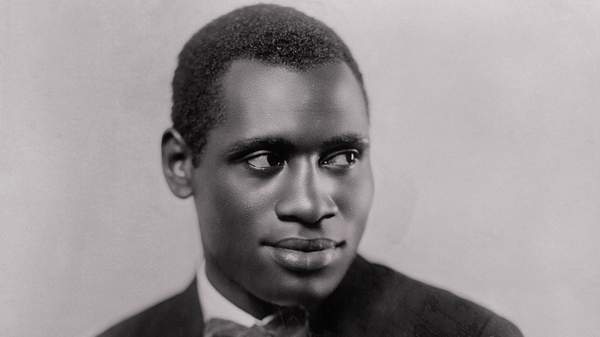Overview
Tayo Aluko is reviving the story of one of the 20th century's most impressive, but overlooked human being. Civil rights activist, Hollywood and Broadway actor, professional football player, singer and lawyer: Paul Robeson achieved a culmination of accolades which most would be incapable of even daring to hope for. His story is that of perseverance, brilliance and fighting for justice.
Growing up in New Jersey, Robeson, a bright kid, sang in the church choir. At the age of 17, he earned a scholarship to attend Rutgers University, the third African American to do so. He then earned a degree in law from Columbia University's Law School, teaching Latin and playing professional football on the weekends to pay tuition, but only briefly worked as a lawyer - quitting due to severe racism at his firm.
Instead he began working as an actor, playing the lead in the production All God's Chillun Got Wings, and then The Emperor Jones - both by playwright Eugene O'Neill. Within a few years he was appearing on film as well as Broadway. His career highlights include appearing in the 1933 movie re-make of The Emperor Jones and a big-screen adaptation of Show Boat (1936), his 1928 rendition of 'Ol' Man River' in the stage production of Showboat (which became his signature song) and his performance in the 1943 Broadway production of Othello.
A popular and well-liked international figure during the '30s, Robeson regularly spoke out against racial injustice as well as involving himself in world politics. He supported Pan-Africanism, sang for Loyalist soldiers during Spain's civil war, took part in anti-Nazi demonstrations and performed for Allied forces during WWII. He also visited the Soviet Union several times during the mid-1930s, inspired by Russian culture and ideas.
Unfortunately McCarthyism and Cold War paranoia meant that Robeson was labeled a communist, and was barred by the State Department from renewing his passport in 1950 to travel abroad for engagements. Many say the ban had less to do with communism and more to do with his eloquent attacks on racism in America. Despite his popularity, Robeson was also blacklisted from domestic concert venues, recording labels and film studios.
In 1958, Robeson published his biography, Here I Stand, the same year that he won the right to have his passport reinstated. He again traveled internationally and received praise and a number of awards for his work, but at this point he was suffering from debilitating depression and related health problems. He died on January 23, 1976 from a stroke.
Aluko's homage play will be showing at The Moorings from February 20 until February 22.
